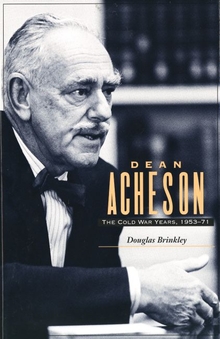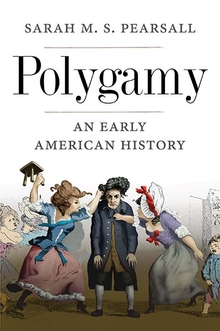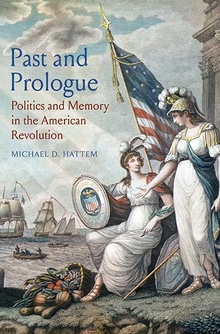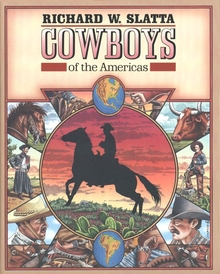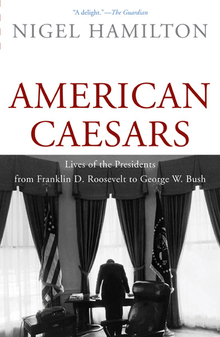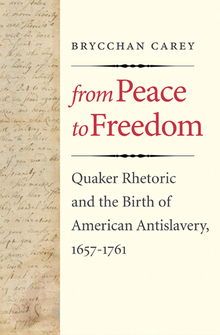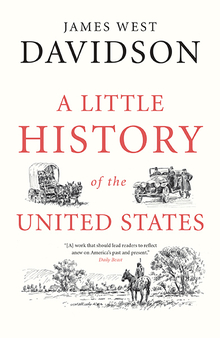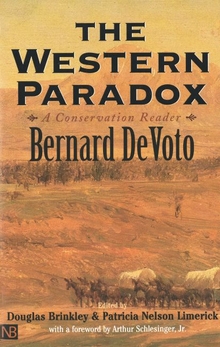Dean Acheson
WARNING
You are viewing an older version of the Yalebooks website. Please visit out new website with more updated information and a better user experience: https://www.yalebooks.com
The Cold War Years, 1953-71
Douglas Brinkley
Out of Print
Dean Acheson is best remembered as President Harry Truman's powerful secretary of state, the American father of NATO, and a major architect of U.S. foreign policy in the decade following the Second World War. But Acheson also played a major role in politics and foreign affairs after his tenure in the Truman administration, as an important Democratic Party activist and theorist during the Eisenhower presidency and as a valued adviser during the Kennedy, Johnson, and Nixon administrations. This engrossing book, the first to chronicle Acheson's postsecretarial career, paints a portrait of a brilliant, irascible, and powerful man acting during a turbulent period in American history.
Drawing on the recently opened Acheson papers as well as on interviews with Acheson's family and with leading public figures of the era, Douglas Brinkley tells an intriguing tale that is part biography, part diplomatic history, and part politics. Brinkley considers Acheson's role in numerous NATO-related debates and task forces, the Berlin and Cuban missile crises, Vietnam War decision-making, the Cyprus dispute of 1964, the anti-de Gaulle initiative of the 1960s, and U.S.-African policy. He describes Acheson as a staunch anticommunist with a persistent Eurocentric focus, a man who was intolerant of American leaders such as George Kennan, J. William Fulbright, and Walter Lippmann for opposing his views, and who often feuded with JFK, LBJ, Robert McNamara, and Dean Rusk. Finally, angered at the activities of anti-Vietnam War liberal Democrats, Acheson found himself in 1969 serving as one of Nixon's most important unofficial foreign policy advisers. Throughout this time, Acheson stayed in the public eye, helped by the six books he wrote after he left office (including the Pulitzer Prize-winning Present at the Creation), his television appearances, lectures, testimony before Congress, and correspondence with European statesmen. Brinkley's book illuminates Acheson as elder statesman and reveals how a unique individual was able to influence policy-making and public opinion without the official trappings of office.
Drawing on the recently opened Acheson papers as well as on interviews with Acheson's family and with leading public figures of the era, Douglas Brinkley tells an intriguing tale that is part biography, part diplomatic history, and part politics. Brinkley considers Acheson's role in numerous NATO-related debates and task forces, the Berlin and Cuban missile crises, Vietnam War decision-making, the Cyprus dispute of 1964, the anti-de Gaulle initiative of the 1960s, and U.S.-African policy. He describes Acheson as a staunch anticommunist with a persistent Eurocentric focus, a man who was intolerant of American leaders such as George Kennan, J. William Fulbright, and Walter Lippmann for opposing his views, and who often feuded with JFK, LBJ, Robert McNamara, and Dean Rusk. Finally, angered at the activities of anti-Vietnam War liberal Democrats, Acheson found himself in 1969 serving as one of Nixon's most important unofficial foreign policy advisers. Throughout this time, Acheson stayed in the public eye, helped by the six books he wrote after he left office (including the Pulitzer Prize-winning Present at the Creation), his television appearances, lectures, testimony before Congress, and correspondence with European statesmen. Brinkley's book illuminates Acheson as elder statesman and reveals how a unique individual was able to influence policy-making and public opinion without the official trappings of office.
Douglas Brinkley is Assistant Professor of History and Teaching Fellow at New College, Hofstra University.
"Brinkley has written a fascinating portrait of Dean Acheson, with all his strengths and weaknesses, and given us an illuminating perspective on American foreign policy in the Cold War, with all its strengths and weaknesses. Highly recommended."—Stephen E. Ambrose, Director, Eisenhower Center, Metropolitan College, University of New Orleans
"Brinkley here tells an informative and gripping story of Acheson's life after he had ended his tenure as Truman's last secretary of state. The book places Acheson's contributions to American foreign policy during this period in enlightened perspective. Its mixture of politics and personalities mirror the complexities of a dangerous, unsettled time."—Forrest C. Pogue, author of General of the Army: George C. Marshall
"In Brinkley's superb study, the record of Dean Acheson out of power is even more telling of the man and statesman than is his famous tenure as secretary of state. Like Brinkley's masterful biography of James Forrestal, this is an essential understanding of our past, and thus of our present."—Roger Morris, author of Richard Milhous Nixon: The Rise of an American Politician
"Brinkley's well-researched study of Dean Acheson's long career as elder statesman is a powerful reminder of the staying power of the policymaking elite—and of Acheson's personal intellectual hold over successor presidents and their advisors from Kennedy to Nixon. It is a fascinating story told with verve and insight"—Lloyd C. Gardner, Charles and Mary Beard Professor of History, Rutgers University
"This book is not only a valuable and balanced study of Dean Acheson's later years but is also an interesting perspective on American foreign policy, international affairs, the Eisenhower, Johnson, and Nixon presidencies, and the political/intellectual divisions within the Democratic Party and American society during that period."—Gaddis Smith, Director of the Center for International and Area Studies, Larner Professor of History, Yale University
"Thoroughly researched and eminently readable, Brinkley's book provides the fullest account yet of Acheson's career in politics and diplomacy following his turbulent tenure as secretary of state. Revealed here, blemishes and all, is a colorful portrait of one of this century's most influential policymakers."—Michael J. Hogan, Editor, Diplomatic History, Professor of History, Ohio State University
"Brinkley has illuminated a hitherto neglected, but important, chapter in Dean Acheson's career. This book makes a valuable contribution to the historiography of the cold war, and to Acheson's involvement in American policymaking over the twenty years following his retirement as secretary of state."—Lawrence S. Kaplan, Director of the Lyman L. Lemintzer Center for NATO studies, Kent State University
"Brinkley, having done with Tim Hoopes the definitive book illuminating the days of James Forrestal, now gives us definitive insights to a later period that covers the Presidency of Gen. Dwight D. Eisenhower who, aided by John Foster Dulles, attempted to run U.S. foreign policy and much of the free world's foreign policy through bluff rather than through building situations of strength. It is a tale of Acheson's wit and character overcoming the frustrations of being the advisor to lesser men."—Paul H. Nitze
"Interesting. . . . [A] good and fundamentally well-balanced book."—George Ball, The New York Review of Books
"Douglas Brinkley's Dean Acheson: the Cold War Years is a splendid study of that bold and bristling figure as he observed foreign affairs in his outspoken years of so-called retirement."—Arthur Schlesinger, Jr.
"Brinkley's book is valuable. . . . What Brinkley has done, by focusing on the phase of Acheson's life when his native conservatism was most outspokenly revealed, is to highlight the reckless perversity of the charges laid against him by his enemies, and so to restore to him the reputation he does deserve, as the grandmaster of the anti-Communist grand alliance."—Godfrey Hodgson, The New Republic
"This biography . . . fills the gap of Acheson's years out of office. . . . Its portrait makes the Acheson-Truman friendship all the more remarkable, for Acheson seems less a twentieth century American democrat than a nineteenth- century British one—a defender of presidential prerogatives in Democratic or Republican season and an unabashed colonialist when it came to Africa."—Foreign Affairs
"Cool, lucid account of the later years of a towering cold-war figure...reveals the furies unleashed in this determined anti-Communist by right wing attacks, showing Acheson's evolution into a power-play whom men like Robert Kennedy and Dean Rusk saw as "heedless and unrelenting...deformed in the crucible of McCarthyism." The author balances history and biography expertly, maintaining clear focus on Acheson's analysis of events and his complex personal interplay with the statesman of his time."—Kirkus Reviews
"Douglas Brinkley's new, thoughtful and thorough study of Acheson in retirement traces his continuing influence over American affairs in long overdue detail."—Martin Walker, Washington Post Book World
"Faults and all, [Acheson] is an engrossing subject for a book. Mr. Brinkley has done well to present him with such dispassionate scholarship."—Economist
"A vivid and compelling portrait of the lion in winter. Brinkley's study shows how Acheson regained power and influence after his tenure as Harry Truman's secretary of state."—The Philadelphia Inquirer
"Brinkley . . . provides us with a solid and eminently readable portrait. . . . Brinkley's book is important for understanding not only Acheson but also the conduct of American foreign policy between 1953 and 1971."—Library Journal
"This slim volume is a deft handbook about public opinion on America's world role, one that marshals a wealth of data and develops several careful case studies. . . . Fresh and thought-provoking. . . . Responsible and wary."—Foreign Affairs
"Brinkley is a scholarly and careful guide to Acheson's life of controversy."—Richard Crockatt, Times Higher Education Supplement
"It is a fascinating outline history of U.S. foreign relations between 1953 and 1971. . . . Brinkley provides a critical examination of one of the globe's most prestigious statesmen as he moved to shape French, British, and German policies, as well as American, even while out of power. . . . Well researched, informative, even instructive, this biography is also a delight to read."—Walter LaFeber, Political Science Quarterly
"Pithy and elegantly phrased, the book shows a command of the complexities of international politics from the end of the Truman administration to Acheson's death at the age of 78 in 1971. . . . With great skill Brinkley gives us Dean Acheson's continuing preoccupation with the world at whose creation he believed he had presided."—D. K. Adams, International Affairs
"A well-written, even-handed, and insightful portrait of a private citizen who exercised great public influence until his death in 1971."—Jeffery C. Livingston, Historian
"A balanced, well-rendered account of a previously neglected period in the life of one of the most important figures in the history of postwar United States foreign policy."—Walter L. Hixson, Journal of American History
"Authoritative, well written, and exhaustively researched. . . . [It] is also important beyond what it tells us about Dean Acheson. It offers particularly valuable insights into U.S.-Western European relationships, the workings of the foreign policy establishment, and the mindset of the early Cold Warriors. As such it deserves to be read by anyone interested in postwar U.S. foreign policy."—Iwan Morgan, American Politics Review
"An excellent and historically sensitive account of Acheson's life after his departure from the State Department. . . . Brinkley has used a wide range of original sources and exploited them splendidly to produce an excellent book."—Nigel Bowles, Political Studies
"Brinkley's readable, scrupulously balanced study of this interesting man of parts offers pleasure and instruction. His critical but finally admiring portrait of Acheson . . . brings these years of tense cold-war confrontation vividly to life again without forcing a single interpretation."—Fraser J. Harbutt, International History Review
"Lucid and graceful. . . . A fascinating window on the Cold War, seen through the eyes of a giant."—Evan Thomas, The New York Times Book Review
"The most full and fully informed study to date on Acheson."—Raymond L. Garthoff, New York Newsday
"A fascinating, slightly off-center perspective on the Cold War world and the mentality which governed American foreign policy from 1947 to 1991."—Warren Kimball, Times Literary Supplement
"Brinkley's treatment of Acheson is fair and objective. . . . [He] has done students of recent American history a signal service in giving him his say."—H.W. Brands, American Historical Review
ISBN: 9780300047738
Publication Date: October 28, 1992
Publication Date: October 28, 1992
x

